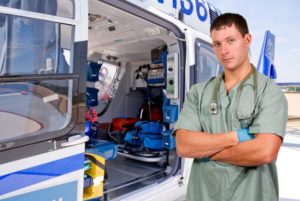Each year, when the days start getting colder and darker, it’s natural to begin feeling a little blue. When people have less exposure to light, lethargy and wanting to be alone can rise to the surface, and no one is completely immune. However, if you find yourself lashing out at those around you, it might be something more than the blues.
Seasonal Affective Disorder (S.A.D.) is depression triggered by a change in seasons, usually when fall starts. It can lead to lethargy, sadness, and irritability. More complex than the “winter blues,” S.A.D. can bring on heavier feelings like shame, guilt, and anxiety. Anyone can develop S.A.D., but travel nurses may be more prone to it because of the added stress of their job. Staying in an unfamiliar location, being far away from your friends and family, and working long hours can build on the symptoms and make nurses feel even worse.
Seasonal Affective Disorder Symptoms
Although people can develop S.A.D. in the spring and summer, it is more prevalent during fall and winter. A few symptoms may include:
- Oversleeping: Light is one of the principal triggers for your body’s natural sleep-wake cycle, so when the temperature drops, minimal sunlight could lead to an increase in melatonin and leave you more tired than usual. Staying in your cozy bed a little longer may seem great, but it’s also considered a winter depression symptom.
- Difficulty concentrating: The sleep problems that come with S.A.D. could also mean trouble focusing. For travel nurses, this could drastically affect your job performance, and in some cases, be the difference between life and death.
- Weight gain: The combination of eating unhealthy carbohydrates and reduced physical activity could lead to weight gain. These types of foods include bread, potatoes, popcorn, soda, and pie. Not all carb-rich foods are bad, but consistently reaching for highly processed and refined carbs creates an unhealthy diet.
- Feeling hopeless: Negative moods that include feeling lonely, worthless, or guilty are linked to S.A.D.
- Loss of interest: A sign of S.A.D. is no longer having a desire to spend time with friends or family. This could make things more difficult for travel nurses when they connect with their coworkers who may want to invite them for social gatherings.
How To Treat S.A.D.
The good news is that there are many steps you can take each week to combat S.A.D. and get you feeling energetic again:
- Brighten up your space. Find ways to invite more sunlight into your home to help lift your spirits and feel more energized. You can also add decor items that bring you joy as well. For example, if you love flowers, buy your favorite and put them in the places where you spend the most time, like the kitchen, bedroom, and living room.
- Maintain a sleep schedule. Insufficient sleep may worsen your depression, creating a problematic cycle. Going to bed and waking up at the same time every day will help get your internal clock on track, minimizing your risk of sleep deprivation or oversleeping.
- Exercise. Physical activity is known to help lower stress, which should alleviate the effects of S.A.D. Find ways to get moving, whether that’s jogging on the treadmill, hitting the slopes, or even taking the stairs at work. Additionally, participating in group workout classes is a chance to connect with others, which could help if you’re feeling lonely.
- Seek Professional Help. A combination of treatments such as light therapy, psychotherapy, or medications can help treat S.A.D. You should also consult with a medical doctor or psychologist, particularly if your symptoms worsen or you have thoughts of death or suicide.
S.A.D. symptoms can be sneaky, so if you recognize that you’re feeling lethargic and depressed this winter, it’s important to find ways to fight back. Many potential S.A.D. treatments can make your time on travel nurse assignments much more manageable.
Check out our job board for available travel nurse jobs in the top travel nurse locations!


